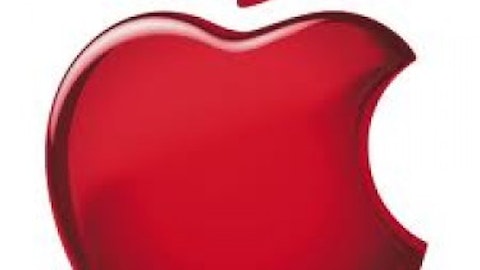A battle over the e-book market has been brewing for years. After the U.S. Department of Justice launched an antitrust suit against Apple Inc. (NASDAQ:AAPL) and the major book publishers, alleging that the companies all participated in a price-fixing conspiracy, Apple was the only one who decided to fight it out with the Feds.
The one and only
Every single one of the publishers decided to settle, paying over $166 million combined, in order to avoid a lengthy and costly legal battle, despite maintaining innocence. Apple Inc. (NASDAQ:AAPL) stuck to its guns, arguing that it didn’t do anything wrong as it doesn’t set the e-book prices. At the D11 conference in May, Tim Cook reiterated Apple’s stance on the matter, “We’re not going to sign something that says we did something that we didn’t do, so we’re going to fight.”
U.S. District Judge Denise Cote has now sided with the DoJ, saying, “Apple Inc. (NASDAQ:AAPL) played a central role in facilitating and executing that conspiracy,” adding that the colluding would have never happened if it weren’t for “Apple’s orchestration.”

Most favored Apple
Apple offered publishers the agency model in the e-book market, as publishers loathed the wholesale model that Amazon.com, Inc. (NASDAQ:AMZN) was using to become a loss leader in the e-book market. Apple Inc. (NASDAQ:AAPL) argued that it was “indifferent” to whether or not publishers forced Amazon to adopt the agency model, but the Mac maker had included a most-favored nation, or MFN, clause that allowed it to match the lowest competing e-book prices.
The MFN legalese within these contracts conveyed the idea that Apple Inc. (NASDAQ:AAPL) just wanted competitive prices, but it could also be considered a roundabout way of forcing publishers to force other e-book sellers to adopt the agency model. For example, if a publisher sold an e-book under the wholesale model to Amazon.com, Inc. (NASDAQ:AMZN) for $13, and Amazon turns around and sells that title for a loss at $9.99, the publisher still gets $13. If a publisher offered the same title through Apple’s iBookstore under the agency model where it keeps a 70% cut and Apple is allowed to match Amazon’s $9.99, the publisher only gets $7 — just over half as much.
The MFN clause key to Apple Inc. (NASDAQ:AAPL)’s strategy, but alone doesn’t prove that the Mac maker was guilty of price-fixing and collusion. Emails told a different story, though.
That’s what he said
Steve Jobs penned some particularly incriminating emails that the DoJ presented. Jobs suggested to News Corp (NASDAQ:NWS)‘s James Murdoch that HarperCollins “throw in with Apple,” but predicted that Amazon.com, Inc. (NASDAQ:AMZN) would eventually try to pay even less for books because “they have shareholders too.”
In a separate email, Jobs notes that Amazon.com, Inc. (NASDAQ:AMZN) had sold an estimated 1 million Kindle e-readers in the roughly 18 months it had been on the market, and Apple Inc. (NASDAQ:AAPL)’s “new devices” (referring to the then-unreleased iPad) would outsell the Kindle within “the first few weeks.” He warned that sticking with Amazon would mean “sitting on the sidelines of the mainstream ebook revolution.”




